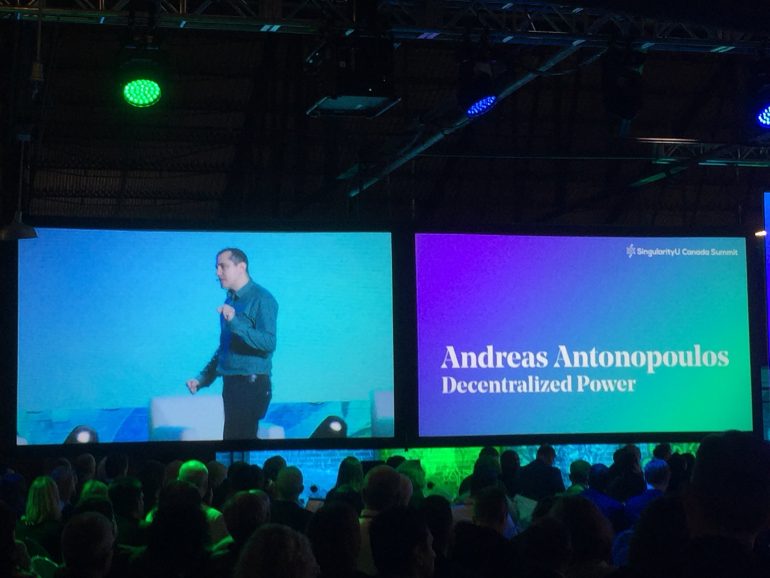At the inaugural SingularityU Canada Summit in Toronto, Andreas Antonopolous — one of the leading experts in bitcoin — explained why the technology is so revolutionary.
“We are living in a world where we can’t trust news, young people don’t have jobs, where they can’t trust institutions like banks, where they feel betrayed by government disenfranchised by democracy,” he said. “The common institutions of society are failing to scale.”
“Trust moves from a person to a mathematical process that’s neutral.”
– Andreas Antonopolous
While he acknowledges that these institutions have moved humanity forward, they’re no longer able to fulfill their original purpose. A hierarchal society means that decisions, information — and ultimately, power — flow to the top. “They get more and more power, and they get more and more detached from the people,” he said, adding that this ultimately leads to corruption.
At the same time, he says that these institutions aren’t made for a world where borders are nonexistent thanks to the internet. Because of this, there is a need for structures that support decentralization.
Bitcoin has the potential to be a transformative technology that changes the way these structures function, specifically because it can scale trust. On a flat P2P, non-hierarchical network where no one knows or trust each other, this network can engineer a ledger that records transactions that cannot be modified.
“Trust moves from a person to a mathematical process that’s neutral called consensus, which is fundamental invention behind bitcoin and other cryptocurrencies, “ he said. “This is the way to achieve massive trust at scale on a completely flat network.”
The most obvious purpose for such a technology, understandably, is payments — even if banks haven’t been the most supportive proponents of bitcoin. But considering that bitcoin can scale trust, he encourages people to think beyond currency.
“You can use it for voting, you can use it to build massively decentralized corporations with tens and thousands of directors participating in decision making. You can have a company with a billion shareholders, none of whom are named or owned,” he said.
Photo via Twitter


